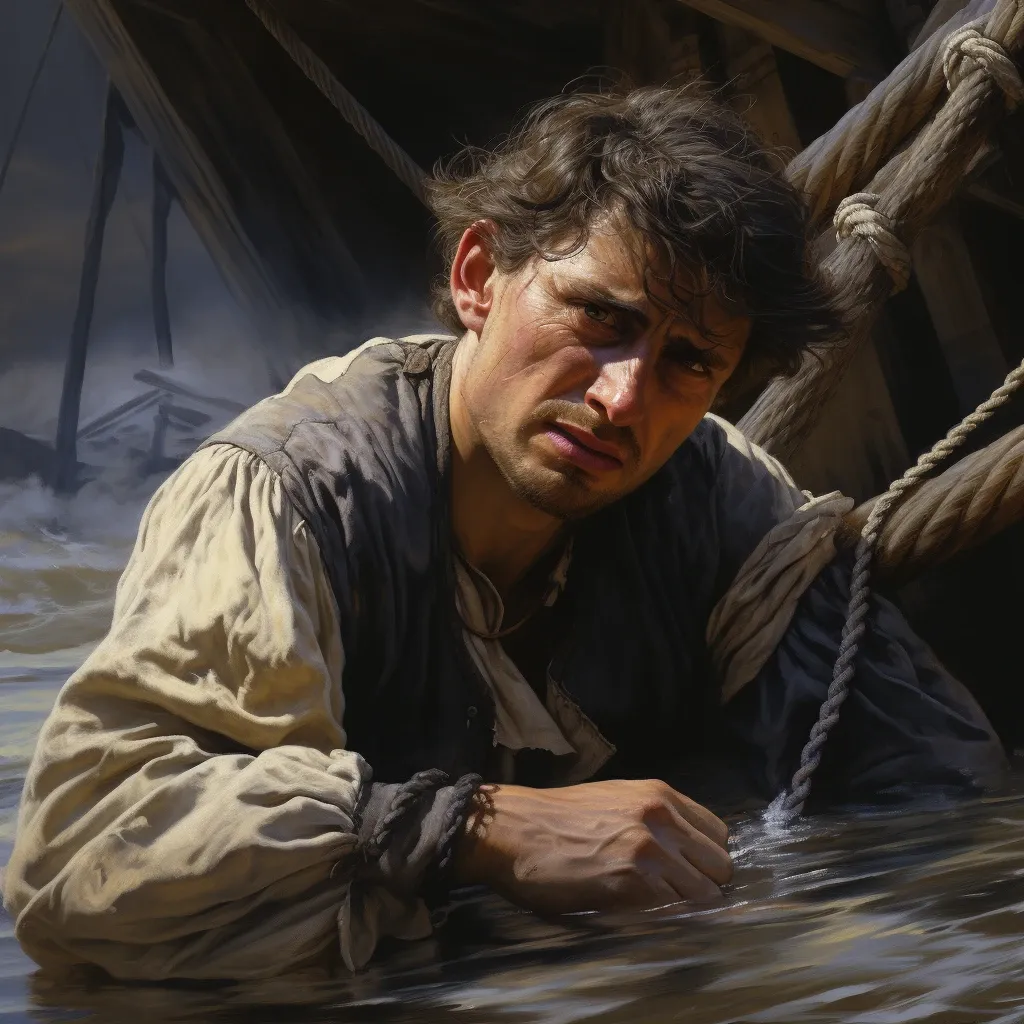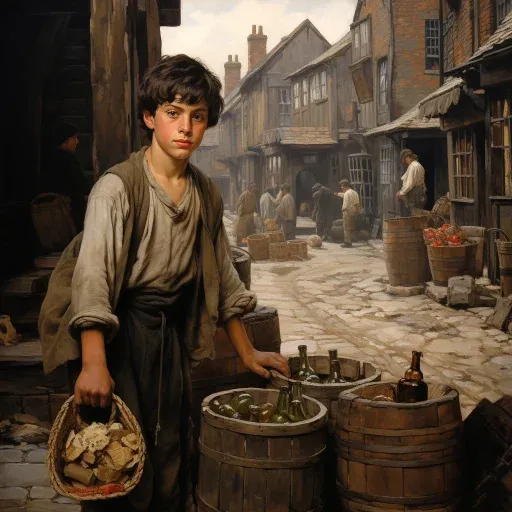
Heading

Dangerous Rock: The Inchcape Rock is a perilous rock off the coast of Scotland, notorious for causing shipwrecks.
Karmic Retribution: Ralph later meets his doom when his own ship wrecks on the rock during a storm, illustrating the theme of poetic justice.
A good book we like, we explorers. That is our best amusement, and our best time killer
- Roald Amundsen, Explorer
Maritime Karma: The Tale of Inchcape Rock
Journey with us as we delve into the enigmatic narrative of the Inchcape Rock, a maritime tale that serves as a profound lesson in karmic justice. Set amidst the treacherous waves of the North Sea, this gripping saga unravels the mystery of a rock that has claimed countless vessels and courageous sailors. At the heart of the story lies the benevolent Abbot of Aberbrothock and the dreaded sea marauder, Ralph the Rover. As the tale unfolds, you'll discover how karma operates, even in the merciless domain of the sea. Prepare to be captivated by this riveting testament to human actions and their inevitable consequences.
The Inchcape Rock: A Maritime Menace
Unseen by the naked eye, lurking beneath the turbulent waves of the North Sea, lies a treacherous adversary known as the Inchcape Rock. This formidable maritime menace is renowned for its notorious reputation, sitting merely twelve miles from any land, often concealed beneath the sea's surface. Time and time again, this hidden terror has wreaked havoc on unsuspecting vessels, claiming countless ships in its wake. The Inchcape Rock's proximity to the water's surface makes it an inescapable obstacle for any ship daring enough to cross its path, resulting in numerous disastrous collisions.
The Benevolent Abbot of Aberbrothock
In the shadow of such a perilous threat, a beacon of hope emerged in the form of a compassionate man known as the Abbot of Aberbrothock. This kindhearted individual lived not far from the treacherous Inchcape Rock and was deeply moved by the countless lives lost to its unforgiving clutches. He lamented, "It is a pity that so many brave sailors should lose their lives on that hidden rock," a sentiment that ignited a burning desire within him to put an end to the carnage.
Podcast
The Abbot's Ingenious Solution: The Bell and The Buoy
Moved by a profound sense of duty, the Abbot of Aberbrothock devised an ingenious solution to avert the tragedies that the Inchcape Rock so frequently induced. He fastened a buoy to the rock, allowing it to float back and forth in the shallow water, securely tethered by a strong chain to prevent it from drifting away. Atop this buoy, the Abbot placed a bell, designed to ring out loud and clear whenever the waves clashed against it. This innovative warning system transformed the sailors' fear into confident navigation, enabling them to pinpoint the rock's location and steer their vessels around it. This simple, yet effective safeguard led the sailors to proclaim in unison, "God bless the good Abbot of Aberbrothock!"
Ralph the Rover: The Sea Robber's Dastardly Deed
Ralph the Rover, a notorious sea robber, was infamous for spreading fear among honest seafarers. One summer day, his ship sailed near the Inchcape Rock. The sea was calm, and the buoy bell's usual ringing was conspicuously absent, presenting an opportunity for mischief. The Rover, unable to resist, commanded his crew to row him to the Inchcape Rock. With a heavy axe, he severed the chain anchoring the buoy and the bell, sending them sinking into the abyss with a haunting gurgle. Ralph the Rover, satisfied with his plot, set sail, leaving the Inchcape Rock unmarked and once again a danger to any unsuspecting vessel.

The Tragic Return of Ralph the Rover
Ralph the Rover continued his sea-roving exploits, unsuspecting of the impact of his cruel act at the Inchcape Rock. After many days, his ship sailed back towards the location of the unmarked rock. A thick fog had set in, and the wind had died, making navigation challenging. The crew, disoriented and without the familiar ringing of the bell to warn them, collided with the Inchcape Rock. In a twist of fate, the ship began to sink. Ralph the Rover, realizing his cruel joke had led to their doom, lamented his actions as the waves took him under.
The Irony of Fate: A Lesson in Karma
The story of Ralph the Rover and the Inchcape Rock serves as a stark reminder of the consequences of one's actions. In his arrogance and disregard for the safety of others, Ralph the Rover had removed the buoy and bell, turning the rock once again into a maritime hazard. This act of malice ultimately led to his own demise, as he fell victim to the very danger he had reinstated. As the sea claimed him, it is said he heard the sound of the bell he had discarded, ringing deep from the sea's depths. This tale of ironic justice serves as a lesson in karma, highlighting the potential repercussions of harmful acts.
Conclusion
As this maritime tale of the Inchcape Rock draws to a close, we are left with the inescapable truth of karmic justice. Ralph the Rover's act of sabotage, initially conceived as a petty jest, ultimately proved to be his undoing. His wicked laughter was silenced by the very bell he so ruthlessly discarded, its echo haunting him in his final moments. The irony of fate is chillingly palpable - those who sow the wind, indeed reap the whirlwind. Remember, actions have consequences and the sea, like life, is not always forgiving. Sail wisely, for the echoes of our deeds often return to us, amplified by the vast expanse of the universe.





